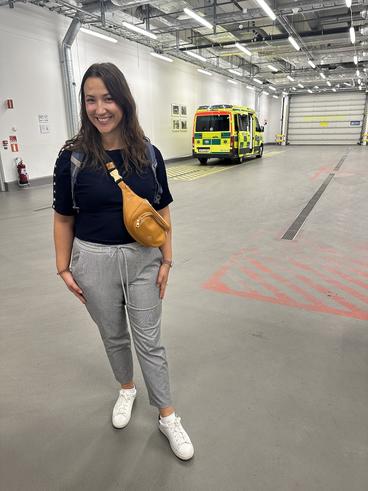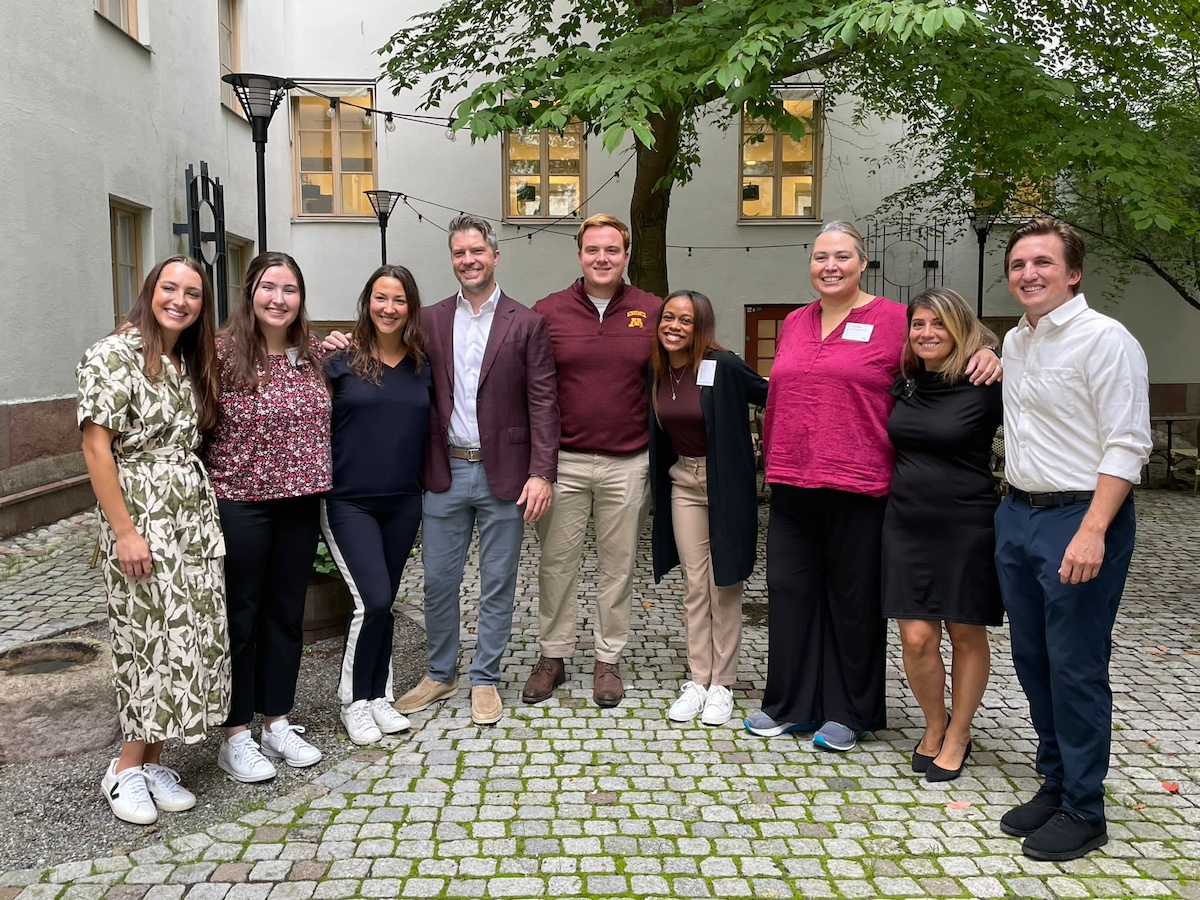Sweden has one of the best healthcare systems in the world, according to the Organization for Economic Cooperation and Development. Students in the Executive Healthcare Administration MHA program in the School of Public Health recently visited Stockholm to see the healthcare system in action.
The trip was designed to give students an understanding of healthcare policy in Sweden, as well as how primary care, specialty care, and additional social services are implemented and delivered. The group spent about a week in Stockholm, learning about the broader healthcare context from Swedish faculty and visiting different clinics and hospitals.
“I feel like I travel a lot and go to international conferences a decent amount, but this was the first time I really felt like I had a basic understanding of how a different healthcare system runs,” said Aaron Berg, an executive MHA student and associate professor of anesthesiology at the University of Minnesota. “It was really interesting to see how different people solve the same problem of patient care and how they do it uniquely based on their system.”
The “Swedish model” welfare system gives all Swedes access to publicly funded healthcare, unemployment and sick leave benefits, child care, education, and elder care, plus at least five weeks of paid vacation a year. Tax-financed healthcare is considered a basic right and vital to making society work effectively.
“This experience taught me to approach the problems we see in the U.S. healthcare system in a way that makes me question why,” executive MHA student Mary Clare DuRocher said. “It taught me to push on the assumptions that the American healthcare system is the way it is and it’s the only way to perform.”
Berg agreed.
“Getting exposure to a different system helps you rethink the things that we’ve done so long because it’s the way we’ve always done it,” he said.
Berg highlighted some of the differences he saw, including how Sweden has a psychologist at every primary clinic — something he said is “unheard of” here. He also appreciated how holistically patients are treated in Sweden compared to the compartmentalization of medicine, with the many different types of specialists, in the U.S.
Traveling with others from her executive MHA cohort made the experience more valuable, according to DuRocher.

“Doing this trip with a cohort of learners who are deeply curious about a global perspective but specifically focused on healthcare delivery and administration was the best part,” she said.
DuRocher is not a medical practitioner herself. She spent nine years in healthcare consulting, and currently works for a healthcare transportation technology startup that connects patients to medical transportation. Being able to ask the clinicians in her group about what she saw on site visits was key.
“Had I gone on this trip solo I wouldn’t have gotten the same experience with the richness of questions asked and the thoughtfulness of visiting care systems,” DuRocher said.
She is using the experience to inform her final capstone project, which compares medical transportation offerings in Sweden and the U.S.
“I really appreciated that I could make this project meet my interests, while also taking a global lens,” DuRocher said. “It’s letting me be a strategic thought partner for my organization in a different way than my regular employee duties. That global perspective is something I’ll continue to draw on.”
